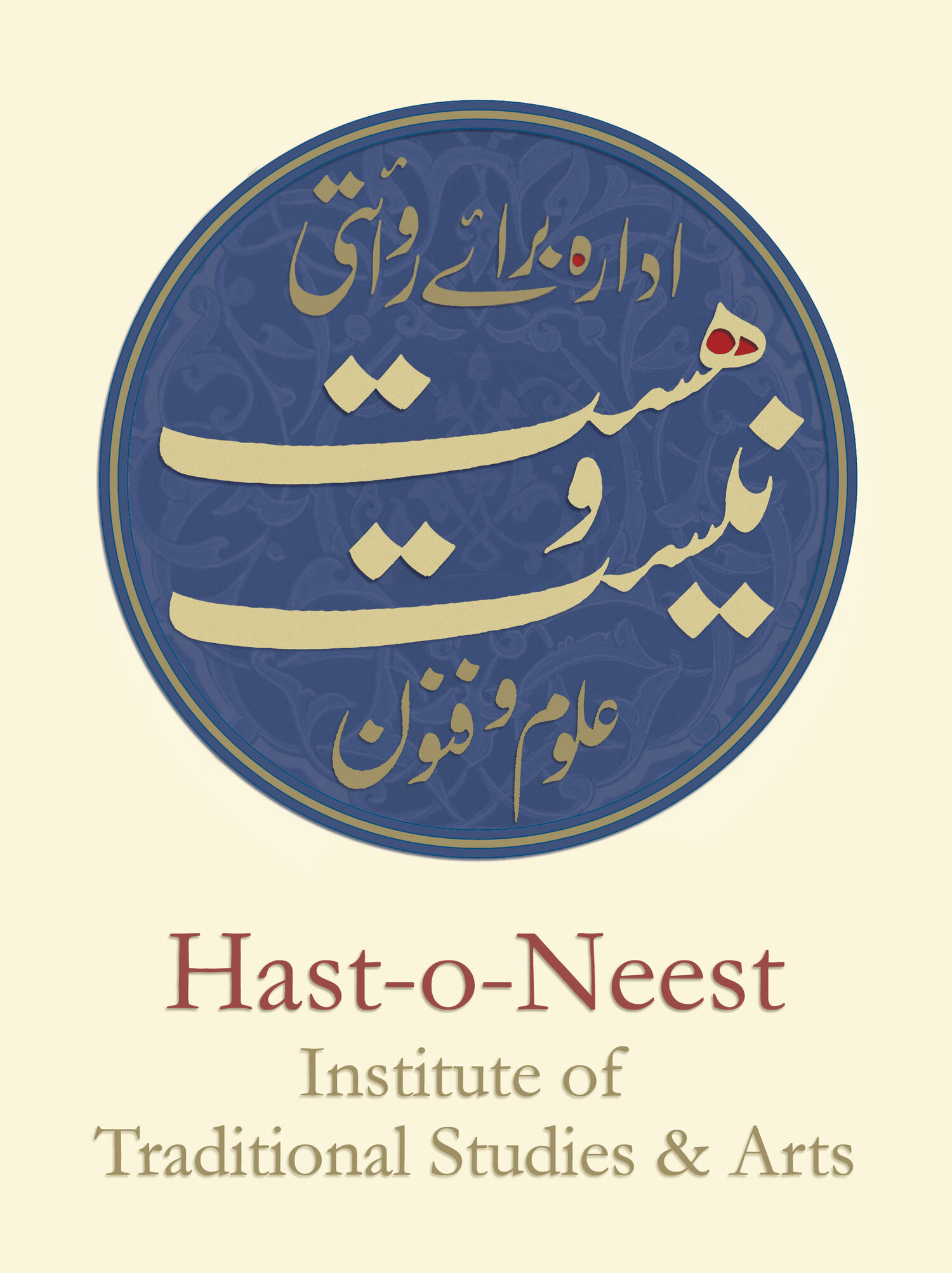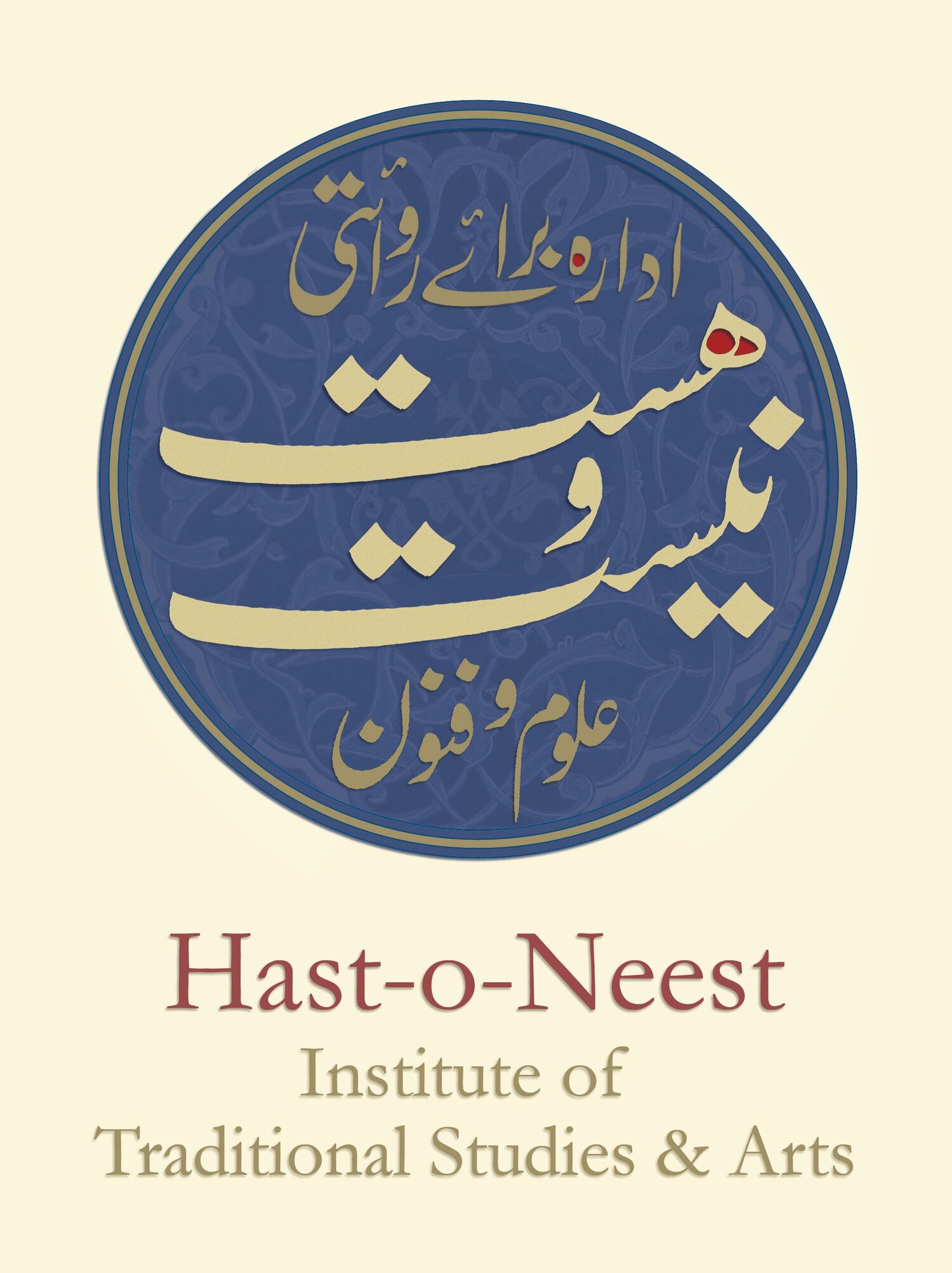
IBN ARABI CENTRE OF METAPHYSICS & PHILOSOPHY
Ibn ʿArabi, also known as Shaikh al-Akbar Muhyi al-Din Ibn al-Arabi(1165 – 1240), was an Andalusian Muslim scholar, mystic, poet, and philosopher. He was and still remains extremely influential within Islamic thought. His cosmological teachings became the dominant worldview in many parts of the Muslim world.
The Centre focuses on study and research programs on traditional Islamic spirituality - Sufism / Tasawwuf - including theoretical Sufism, Sufi Poetry/Kalaam; Symbolism and Comparative Mysticism; traditional Islamic philosophy, its major teachers and themes, as well as comparative philosophy, and the intellectual heritage of the Islamic World in general.
Coordinator: Taimoor Khan Mumtaz
Programs/Courses
-
Part 1: A modular study program inspired by the Quranic verse ‘He giveth wisdom unto whom He will, and he unto whom wisdom is given, he truly hath received abundant good. But none remember except men of understanding. Al- Quran 2:269 Al-Baqara’ covering aspects of Modernity, and the Islamic Tradition with a focus on South Asia.
Part 11: A modular program covering six foundational subjects as Philosophy, Metaphysics, Sprituality, Rhetoric/Balaghat, Intellectual Tradition & Masnavi.
-
A two part program on the study of Islamic Philosophy based on the book Hikmat e Sadra - An Introduction to Islamic Philosophy by Ustad Hamid Reza Fazil
-
Introduction the Classical Mantiq (Logic)
24 sessions - online only - with Ustad Syed Hijaz Naqvi
-
15 in person & online sessions on Chinese History, Land, People & Culture with Dr. Qaiser Shahzad (IIU, Islamabad)
-
The one-month - 12 sessions - Quran Introductory Program is designed to take the ritualistic relationship with the Quran to a more holistic and intellectual level. The program aims to achieve this by opening doors for the participant towards the following aspects:
(1) Appreciating the language and socio-historical context of the Quranic revelation.
(2) Experiencing the Quran in its visual, auditory & aesthetic dimensions.
(3) Familiarization with the mainstream theological schools and the classical methodologies of interpretation to bring out the contrast with contemporary trends.
(4) Taking cognizance of the layers of meaning and themes of the Quran.
(5) Introducing other aspects of the Quran such as its connection with hadith; methods of transmission; the impact of the Quran on Islamic Culture and Civilization; and its usage as talismanic power, and more.
In Search of Wisdom in the Modern Age
1. In Search of Wisdom in the Modern Age Foundations - Part 1
تلاشِ حکمت دورِ حاضر کے تناظر میں
The journey of In Search of Wisdom in the Modern Age consists of study and reflection on Six Topics or Modules of 6 weeks each - a total of 12 sessions per module.
These modular conversations include lectures, seminars & demonstrations, and generally require intensive reading and presentations from participants.
Sessions are online & in-person, twice a week on weekends. Applicants can participate in all the six modules or select a module as per interest.
Topics/Modules
-
Description text goes here
-
2. Islamic Worldview - Metaphysics, Cosmology, Epistemology, Ethics & Politics
-
3. Mysticism - Theoretical & Practical Aspects
-
4. The Function, Principles & Practice of Traditional Islamic Art & Architecture - This course introduces participants to the Philosophy, World-view, Principles & Practice of Traditional (Pre-Modern) Art in general and the Islamic Arts of the Subcontinent in Particular.
-
In Arabic, Persian and Urdu Adab refers to prescribed Islamic etiquette - "refinement, good manners, morals, decorum, decency, humaneness" – as well as Literature.
-
This course introduces participants to the major aspects of the Islamic intellectual tradition of the Subcontinent. In this course we will discuss the Muslim Intellectuals and Islamic literatures of Early Muslim, Sultanate and Mughal Periods. Our goal is to understand the concepts that Muslim intellectuals articulated and the intellectual movements of Ma’qulaat (Rational Sciences), Manqulaat (Religious Sciences) and Tasawwuf (Islamic Spirituality) engendered from the 8th century through the 18th century. We will also explore questions concerning academic decentralization, transmission of knowledge and pattern of education in Subcontinent.
Outline per Module
-
1. Modernity
Taimoor K. Mumtaz
An Overview of the History, Principles and Development of the Modern Age.
i. Greco-Roman Roots 2 Sessions
ii. Renaissance 2 Sessions
iii. Enlightenment 2 Sessions
iv. Scientific Revolution 2 Sessions
v. Industrial Revolution 2 Sessions
vi. Modernity & Post-Modernity 2 Sessions
-
Starts on 5th April 2024
1. Introduction
Taimoor K. Mumtaz
2. Metaphysics
Taimoor K. Mumtaz
3. Cosmology
Taimoor K. Mumtaz
4. On Knowledge – God, Man & Cosmos
Hamid Raza Fazil
5. Ethics – I
Syed Rizwan Zamir
6. Ethics – II
Syed Rizwan Zamir
7. Ethics - III
Syed Rizwan Zamir
8. Student Presentations 1 session
-
Taimoor Khan Mumtaz & Dr. Syed Rehan Gelani
1. Introduction - Nizami Bansari
2. Book of Certainity – Abu Bakr Siraj ad-Din
3. Haal-e-Safar – Bagh Hussain Kamal
4. Quran, Hadith & Spirituality
5. Awarif-ul-Maarif – Shaykh Umar Shahabuddin Suhrawardi
6. Ayn-ul-Faqr – Hazrat Sultan Bahu
7. Fuyuz-ul-Haramayn – Shah Waliullah -Knowledge through Unveiling – Mukashafa
8. Comparative Mystical Practice
9. Maqabees al-Majalis & Divan - Khwaja Ghulam Farid
(Wahadat al-Wujud)
10. Mahasin al-Majalis – Ibn al-Arif
11. Student Presentations
-
4. Art & Contemplation
The Function, Principles & Practice of Traditional Islamic Art & Architecture
This course introduces participants to the Philosophy, World-view, Principles & Practice of Traditional (Pre-Modern) Art in general and the Islamic Arts of the Subcontinent in Particular.
1. Geometry, Cosmology & Number (Demo)
Taimoor K. Mumtaz
2. Traditional Art – Haqeeqat Aur Majaaz
Taimoor K. Mumtaz
3. Seminar: ‘Art of Islam’ (Book) - Taimoor Khan Mumtaz
4. Seminar: ‘The World of Imagination & the Concept of Space in the Persian Miniature’ – S. H. Nasr - Fyza Noon
5. Meter (Uruz) in Urdu Poetry - Syed Hijaz Naqvi
6. Hindustani Classical Music (Talk/Demo) - Ustad Chand Khan
7. Calligraphy (Talk/Demo) - Ustad Ahmed Ali Bhutta
8. Grammar, Vocabulary & Methods of Mughal Architecture - Taimoor K. Mumtaz
9. Aesthetic Theory – The Nav Rasa (Nine Rasas) - Natyashastra (Bharatmuni)
Taimoor K. Mumtaz
10.
11. Wazir Khan Mosque – A Mirror of Civilisation (Site Visit)
Taimoor K. Mumtaz
12. Student Presentations
-
Taimoor Khan Mumtaz
Orientation – The Place of Adab in Muslim Civilisation
2. Mythology
3. Story as Symbol
4. The Hero's Journey
5. The Hero's Journey
6. The Symbolism of Love
7. Didactic* Poetry & Prose – From the Shahnama of Firdausi – A.K. Coomaraswamy Article - Children's Tales - Saif-ul-Muluk (Mian Muhammad Bukhsh) - Ishsq-e-Haqeeqi wa Majazi - Heer Waris Shah – Gulistan of Sheikh Saadi (with Syed Jawwad Hamdani)
Page 4 of 6
8. Didactic* Poetry & Prose
9. Spiritual Development
10. Sacred Literature
11. Student Presentations
12. Student Presentations – Bostan of Sheikh Saadi (with Syed Jawwad Hamdani) - Masnavi Maulana Rum (with Kauser Ali) - Select
-
Introduction to the Intellectual Tradition of Islamic South Asia with Dr. Amjad Waheed
بر صغیر کی اسلامی فکری روایت
Week-wise Outline:
Week 1: Islamic Intellectual Tradition in Pre Mughal South Asia: Abu Ali Sindhi and Amir Khusru
Week 2: Intellectual and Scholarly Networks in Mughal India: Fatehullah Shirazi and Muhib ullah Illahabadi
Week 3: Islamic Intellectual Culture in Mughal India:Chahar Chaman by Chanderbhan Brehman
Week 4: Unity of Existence in the Light of Mulla Abdul Ali Lakhnavi’s Treatise
Week 5: Unity of Witnessing in the Light of Sheikh Ahmed Sirhindi’s Maktubat
Week 6: Education in Mughal South Asia: Farangi Mahal and Risalah Danishmandi
(For application criterea, method please see the tab titled ‘Application’)
(For structure and fee, please see the tab titled ‘Structure & Fee’)
Structure
-
Teacher Profiles
Taimoor Khan Mumtaz: MA PRASADA, Leicester, UK; BArch NCA Lahore. Taimoor Khan Mumtaz practices architecture in Lahore, and teaches metaphysics, geometry and Islamic Architecture at Hastoneest and various other institutes.
Syed Hijaz Mehdi is a poet and teaches Urdu poetry appreciation at Hast o Neest, and other educational forums. He is fluent in Arabic, Farsi and holds a keen interest in philosophy. He has published a collection of his poetry, and a book on Urdu poetics published by Hast o Neest.
Hamid Reza Fazil: A traditional religious scholar of Arabic, Quranic Exegesis and Islamic Law with special interest in philosophy & metaphysics. Listen to a Lecture
Dr. Syed Rizwan Zamir: Ph.D. University of Virginia. B.A . James Madison University. Area of Islamic studies, specializing in Islamic thought and spirituality. He is currently an Associate Professor at Davidson College, NC, USA.
Dr. Amjad Waheed: Ph.D.Comparative Civilizations University of Punjab. Ex - Director School of Advanced Studies, UMT, Lahore.
Fyza Noon: NCA Fine Arts * Miniature Painting under Ustad Bashir Ahmed.
Ustad Chand Khan: Patiala & Sham Churasi Gharanas, sons of the famous Ustad Hussain Bukhsh Gullu
Ustad Ahmed Ali Bhutta: Khattat Ahmed Ali Bhutta's teacher is Hafiz Muhammad Yousuf Sadeedi. He is from Faisalabad, and his expertise is in Nastaaliq, Naskh, Thuluth, Kufic scripts. He has participated in several calligraphy competitions and has been a part of the Hast-o-Neest calligraphy exhibition Darya Ba Hubab Andar at Koel Gallery, Karachi.
-
Program Requirement
1 | Applicants should be comfortable with Urdu and English language.
2. Applicants should be prepared to give at least 3 hours for reading in a week.
3.Participants will be required to give presentations on selected conversations & reading.
The emphasis is on reading, reflection & teacher engagement to gain clarity & insight
-
Course Structure:
1) Format: Online on Zoom & In-person
Two 45 minutes sessions with a 15 minute break on Fridays & Sundays evenings/night | 7:30 pm to 9: 15 pm.
2) Duration: One module is for Six Weeks - Total 12 sessions per module.
3) Contributing Fee per Module - PKR 9,000/-
Details of payment method will be shared after student application.
-
The sessions will be online on Zoom & In person.
Recordings of sessions will be provided to all applicants either as downloadable Zoom link or You Tube upload.
-
To Apply: Send in Course Title, Applicant Name, Academic Background, Email Address & Whatsapp number on hast.o.neest@gmail.com or on 03008493170 with a short paragraph on the reason for applying.
Fee Guidelines will be provided.
‘He giveth wisdom unto whom He will, and he unto whom wisdom is given, he truly hath received abundant good. But none remember except men of understanding.’
2:269 Al-Baqara
In Search of Wisdom in the Modern Age
1. In Search of Wisdom in the Modern Age Seminars - Part II
تلاشِ حکمت دورِ حاضر کے تناظر میں
The journey of In Search of Wisdom in the Modern Age consists of study and reflection on Six Topics or Modules of 6 weeks each - a total of 12 sessions per module.
These modular conversations include lectures, seminars & demonstrations, and generally require intensive reading and presentations from participants.
Sessions are online & in-person, twice a week on weekends. Applicants can participate in all the six modules or select a module as per interest.
Outline per module
-
1. Modernity
An Overview of the History, Principles and Development of the Modern Age
Philosophical Foundations: Reign of Quantity – Guenon Study Circle - 6 Sessions - Dr. Syed Abbas Zilqarnain
Critique of Science: Wolfgang Smith - Study Circle - 6 Sessions Dr. Syed Abbas Zilqarnain
-
2. Islamic Worldview
Metaphysics, Cosmology, Epistemology, Ethics & Politics
Metaphysics: Muqaddama-e-Qaiseri Study Circle - 3 Sessions Hamid Raza Fazil
Cosmology: Ibn Sina’s Shifa Study Circle - 3 Sessions Hamid Raza Fazil
Epistemology: Allama Tabatabi Text Study Circle - 3 Sessions Hamid Raza Fazil
Ethics: Akhlaq-e-Nasiri OR Tehzib al-Akhlaq Study Circle - 3 Sessions Dr. Syed Rizwan Zamir
-
3. Mysticism
Theoretical & Practical Aspects | Total 12 sessions - 6 Weeks | Study Circles on Three Texts
Starting 7th December 2024
Awarif al-Ma’rif of Shahabuddin Suharwardy | 4 Sessions - Dr. Syed Rehan Gelani
Altaf al Quds of Shah Waliullah 4 Sessions - Taimoor Khan. Mumtaz
The Book of Certainty of Dr. Martin Lings Abu Bakr Siraj ud Din - 4 Sessions - Taimoor Khan Mumtaz
Complete Module Contributing Fee is PKR 9000/- The method of payment is provided to applicants.
For the Application Method please see the Application Tab.
-
4. Art & Contemplation
The Function, Principles & Practice of Traditional Art & Architecture
‘Metaphysics, Logic & Poetry in the Orient’ - S. H. Nasr Study Circle - 1 Session Taimoor K. Mumtaz
‘Nazm-e-Parveen - Study Circle - 1 Session Taimoor K. Mumtaz
Ta’limāt-e-Khushnavisi Maa’ Qavāid’(1901) by Munshi Shamsuddin Aijaz Raqam Lakhnavi
Abul Fazl on Calligraphy in Ain-e-Akbari (1590) Study Circle - 1 Session Taimoor K. Mumtaz
Mir Ali Tabrizi’s Introduction to his 16th C Treatise on Calligraphy
‘Ustad Ahmed Mimar Lahori Study Circle - 1 Session Taimoor K. Mumtaz
Aur Uska Khandan’ (1957) 40 Page Monograph by Dr. Abdullah Chughtai
Risala-i Mimariya Study Circle - 1 Session Taimoor K. Mumtaz
17th C Ottoman Treatise on Architecture by Jafar Effendi
Introduction to Balaghat Study Circle - 1 Session Syed Hijaz Mehdi
‘The Influence of Sufism on Traditional Persian Music’ S. H. Nasr Study Circle - 1 Session Taimoor K. Mumtaz
Shams-ul-Aswat - Ras Baras Khan - 17th C Treatise on Music Study Circle - 1 Session Taimoor K. Mumtaz
Frescos of Lahore Site Visits Saamia Vine
Classical Music Vocal Demo Chand Khan
Classical Tabla Tabla Demo Ustad Jaggu
Calligraphy Demo Ahmed Ai Bhutta
-
5. Adab & the Search for Wisdom
- Masnavi Maulana Rum Study Circle - 3 Sessions Kauser Ali
- Saif-ul-Muluk - Mian Muhammad Bukhsh Study Circle - 3 Sessions Taimoor K. Mumtaz
-Sub Ras – Allegorical Tale - Mullah Wajih Deccan Study Circle - 3 Sessions Taimoor K. Mumtaz
-Heer of Waris Shah Study Circle - 3 Sessions Taimoor K. Mumtaz
-
6. The Islamic Intellectual Tradition
Meaning, Purpose & Transmission of Knowledge (with Focus on the Sub-Continent)
- Hujatullah al-Baligha - Shah Waliullah Study Circle - 6 Sessions Dr. Amjad Waheed
- Millat-e-Islamia: Tehzeeb-o-Taqdeer - Siraj Munir Study Circle - 6 Sessions Dr. Amjad Waheed
Structure
-
Teacher Profiles
Taimoor Khan Mumtaz: MA PRASADA, Leicester, UK; BArch NCA Lahore. Taimoor Khan Mumtaz practices architecture in Lahore, and teaches metaphysics, geometry and Islamic Architecture at Hastoneest and various other institutes.
Syed Hijaz Mehdi is a poet and teaches Urdu poetry appreciation at Hast o Neest, and other educational forums. He is fluent in Arabic, Farsi and holds a keen interest in philosophy. He has published a collection of his poetry, and a book on Urdu poetics published by Hast o Neest.
Dr. Syed Abbas Z Naqvi | is an Associate Professor of Engineering at University of Engineering & Technology, Lahore. He obtained his PhD from Purdue University, USA, in Computer Sciences. His research areas include: Sparse bayesian learning, Object recognition, Collaborative robots & deep learning.
Hamid Reza Fazil: A traditional religious scholar of Arabic, Quranic Exegesis and Islamic Law with special interest in philosophy & metaphysics. Listen to a Lecture
Dr. Syed Rizwan Zamir: Ph.D. University of Virginia. B.A . James Madison University. Area of Islamic studies, specializing in Islamic thought and spirituality. He is currently an Associate Professor at Davidson College, NC, USA.
Dr. Amjad Waheed: Ph.D.Comparative Civilizations University of Punjab. Ex - Director School of Advanced Studies, UMT, Lahore.
Kausar Ali
Kausar Ali - as a student of Farsi - has been reading Masnavi for more than ten years under the guidance of various teachers.
-
Program Requirement
1 | Applicant should preferably have completed the same module in In Search of Wisdom Part 1, or participated in any other related study program at Hast o Neest
2 | Applicant should be comfortable with Urdu and English language.
2. Applicants should be prepared to give at least 5 hours for reading & reflection in a week.
The emphasis is on reading, reflection & teacher engagement to gain clarity & insight
-
Course Format & Duration:
1) Format: Online on Zoom & In-person
One 2 & a half hour sessions with a 15 minute break on Saturdays | 8:00 pm to 10:30 pm
2) Duration: Six Weeks for one module.
3) Contributing Fee per Module | PKR 9, 000/-
Details of payment method will be shared after student application.
-
The sessions will be online on Zoom & In person.
Recordings of sessions will be provided to all applicants either as downloadable Zoom link or You Tube upload.
-
To Apply: Send in Course Title, Applicant Name, Academic Background, Email Address & Whatsapp number on hast.o.neest@gmail.com or on 03008493170 with a short paragraph on the reason for applying.
Fee Guidelines will be provided.

Dr. Amjad Waheed

Hamid Reza Fazil
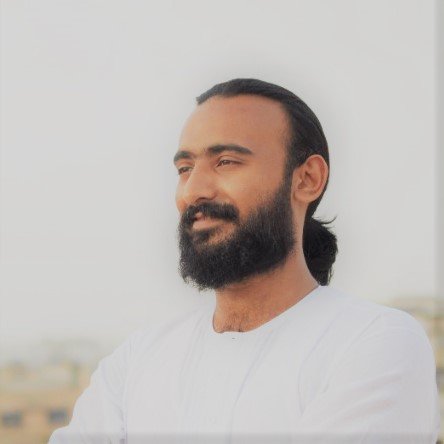
Syed Hijaz Mehdi Naqvi

Dr. Syed Rehan Gelani
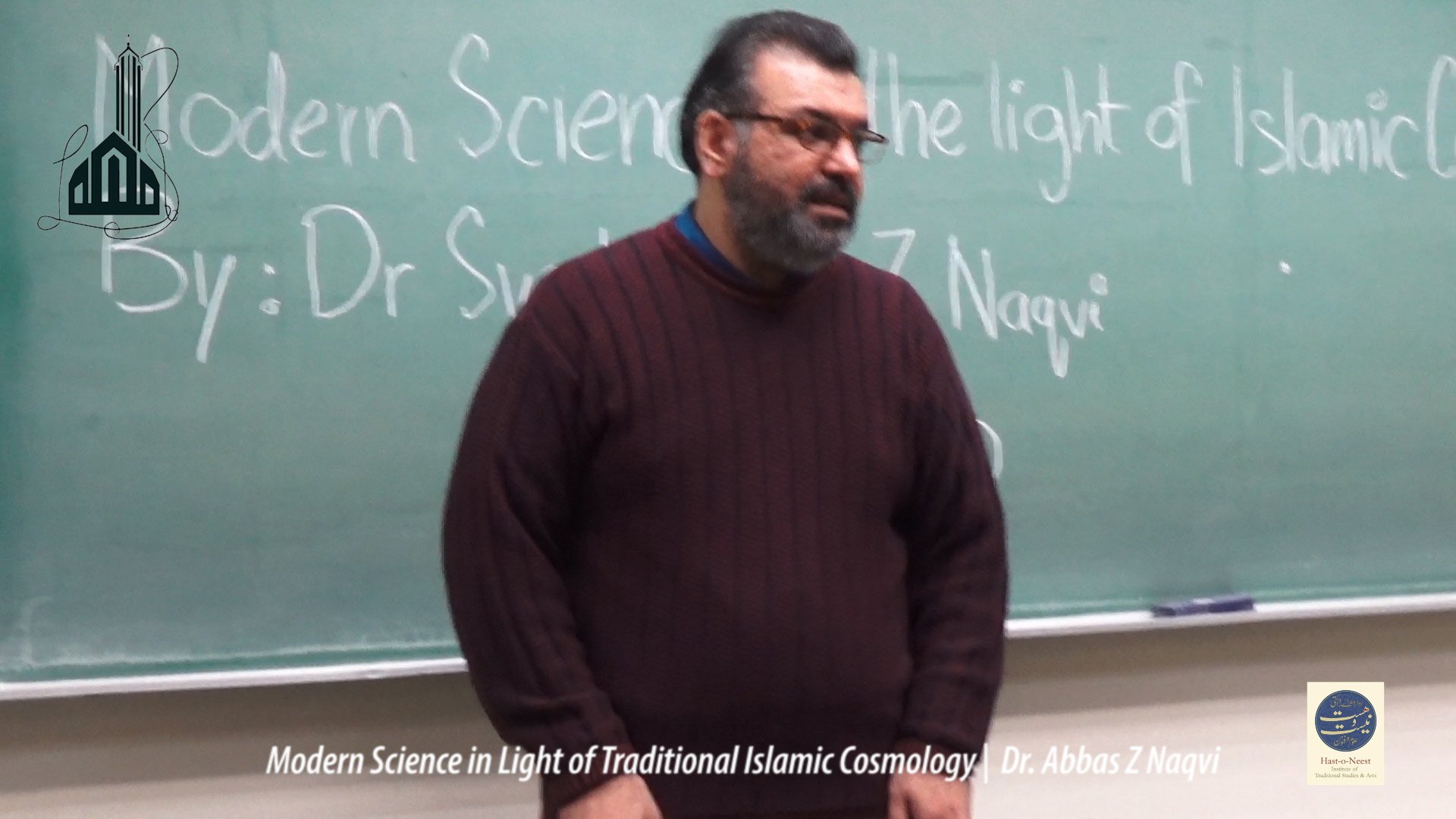
Dr. Syed Abbas Z Naqvi
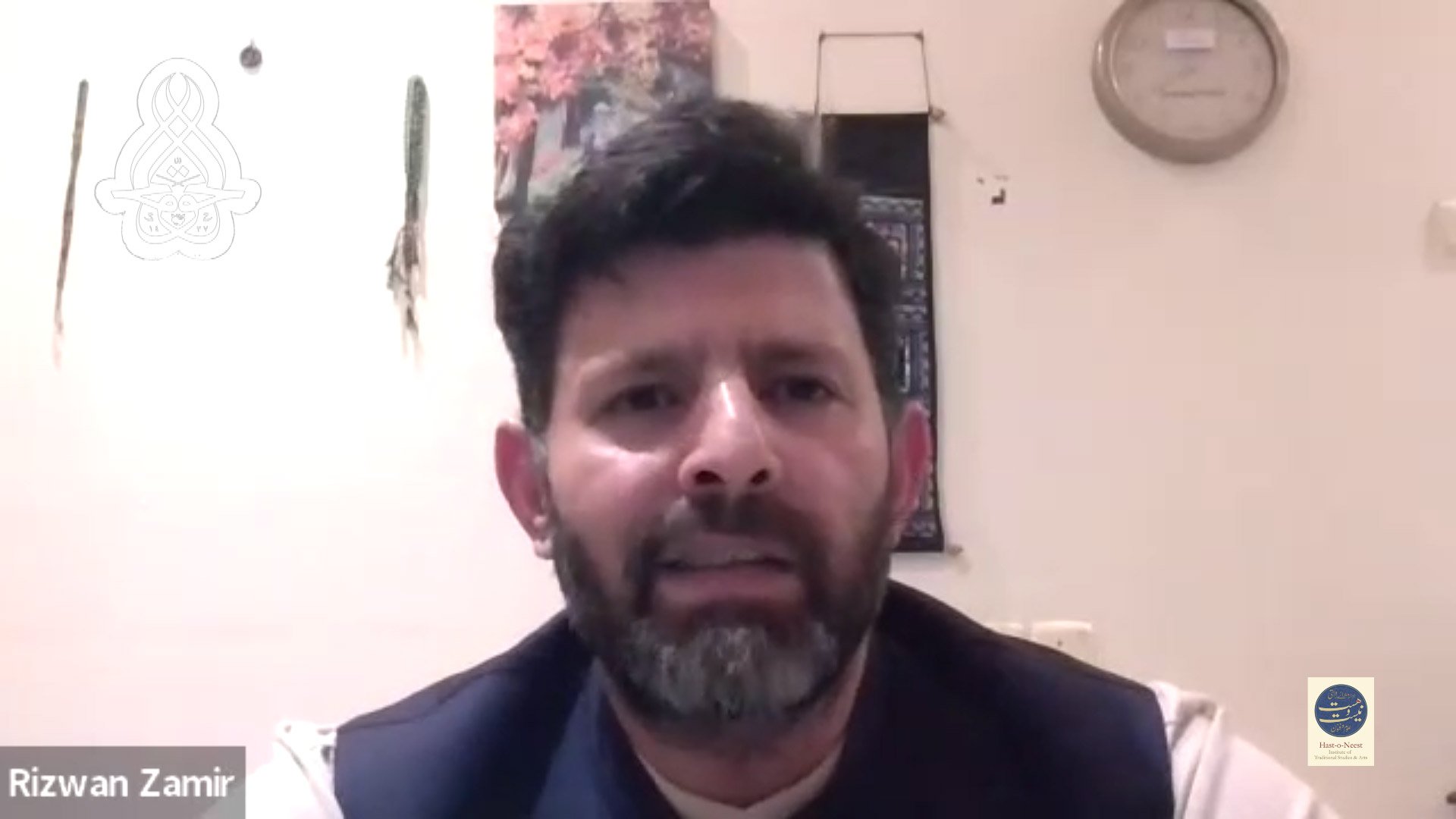
Dr. Syed Rizwan Zamir
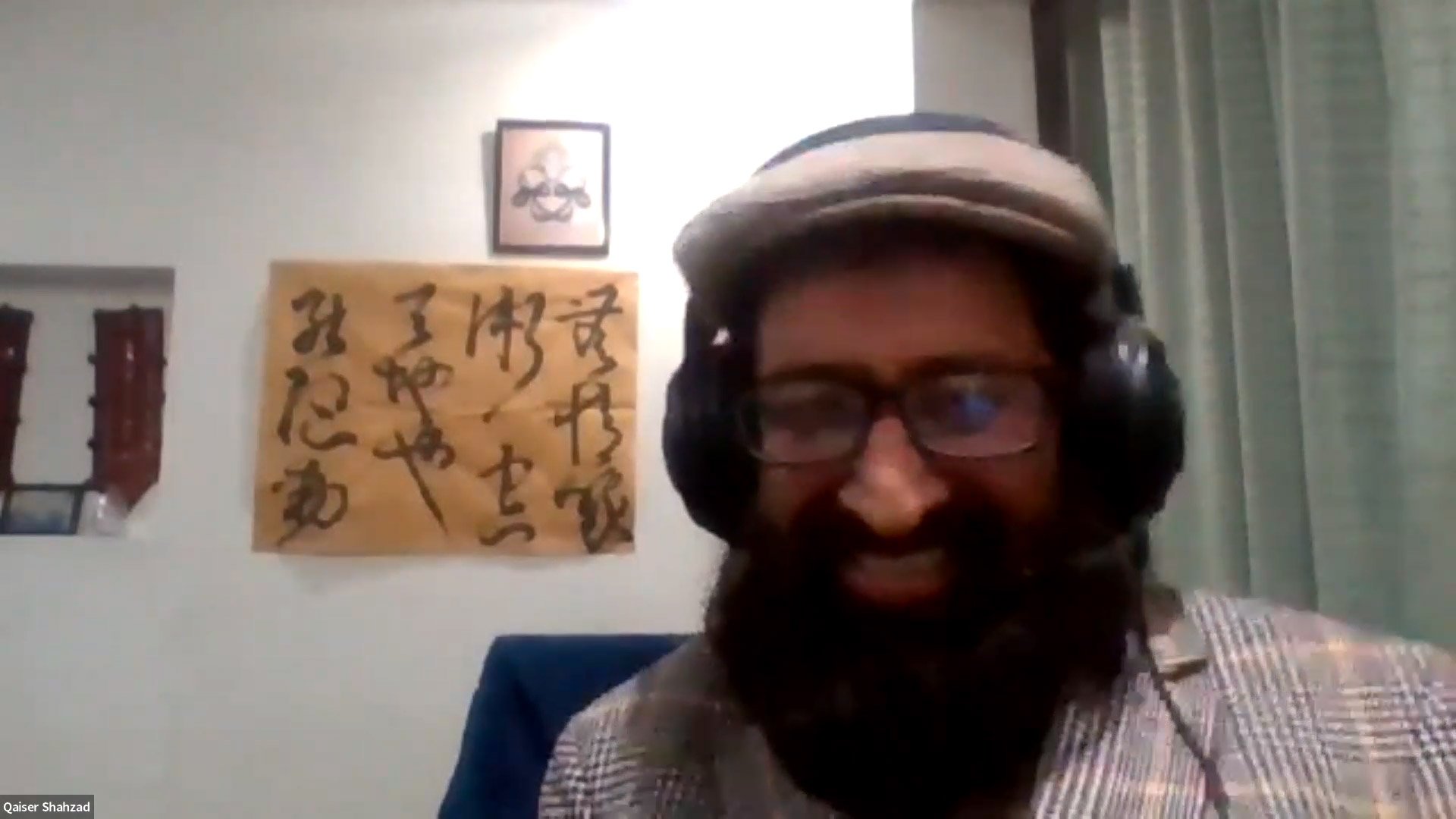
Dr. Qaiser Shahzad
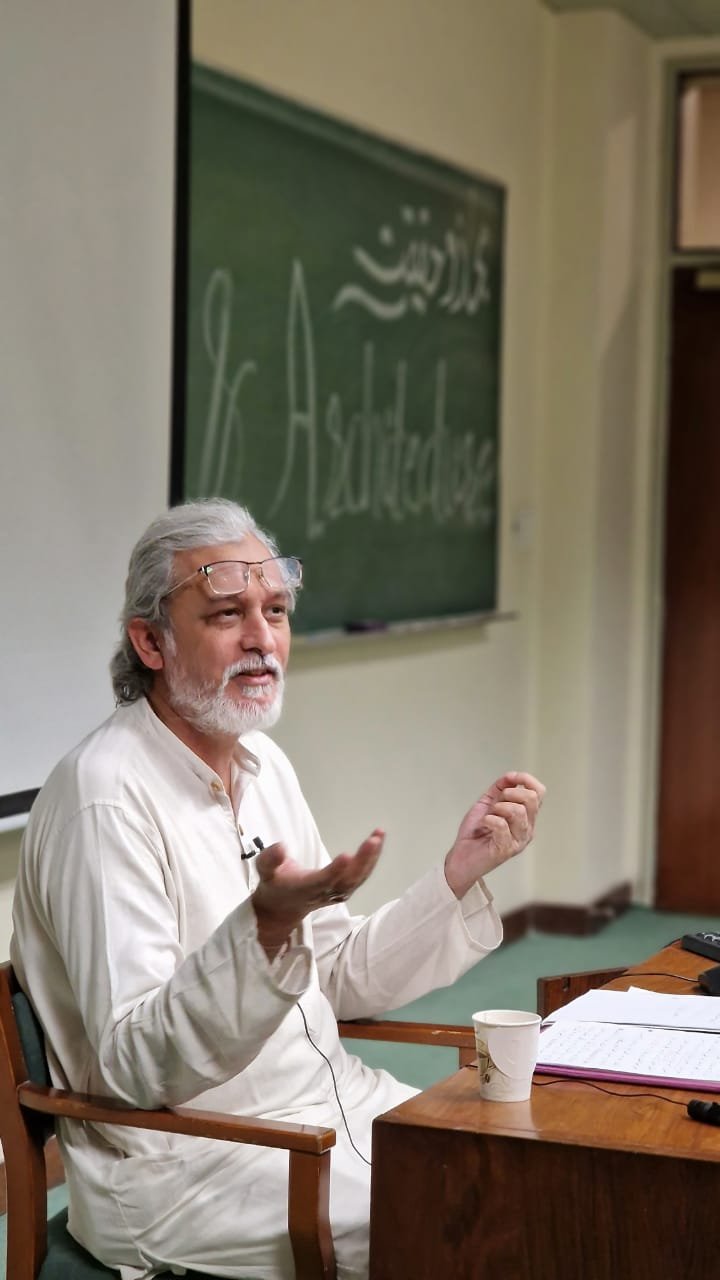
Taimoor Khan Mumtaz

Qasim Jafri
Hikmat e Sadra
2. Hikmat e Sadra مکتبِ ملا صدرا تعارف فلسفہ اسلامی حامد رضا فاضل
آن لائن دروس - کتاب بعنوان حکمت صدرا - تعارف فلسفه اسلامی - مصنف حامد رضا فاضل
Introduction to the School of Mulla Sadra (& Islamic Philosophy) with Ustad Hamid Reza Fazil
حصہ اول: الٰہیات - عمومی مباحث
Part 1: 9 Study Sessions based on Part One of the Book | Once a week | Fridays, 9:00 to 10:30 pm - Starting 14th February 2025
حصہ دوم: الٰہیات- خصوصی مباحث
Part 2: 6 Study Sessions based on Part Two of the Book | Once a week | Fridays, 9:00 to 10:30 pm - Starting May 2025
-
Ustad Hamid Reza Fazil, a traditional religious scholar of Arabic, Quranic Exegesis and Islamic Law with special interest in philosophy & metaphysics. He has been teaching philosophy & irfan at Hast o Neest for 10 years. He lives and works in Islamabad & Mianwali.
حامد رضا ماضل کا تعلق ماڑی انڈس ضلع میانوالی سے ہےـ وہ تقریباً ربع صدی سے علم و فن کے میدان میں سرانجام دے رہے ہیں
-
The book Hikmat e Sadra - An Introduction to Islamic Philosophy by Ustad Hamid Reza Fazil was published by Hast o Neest in 2021.
“اسلامی فلسفہ صدیوں سے اسلامی علمی روایت کا ایک اہم جز اور ستون رہا ہے - چنانچہ درس نظامی کے نصاب میں منطق اور دیگر علوم عقلیات کے زمرے میں شامل رہا ہے - علامہ محمد اقبال کی پی ایچ ڈی مقالے میں اقبال ملا صدرا کا ذکر کرتے ہیں -” Dr. Syed Rizwan Zamir
-
The study is based on the book Hikmat e Sadra, which is divided into two main sections - Ilahiat Ummumi Mabahis & Ilahiat Khasusi Mabahis.
Participants are expected to complete the assigned readings (& self-research) - two chapters per session - prior to the scheduled class
کتاب بعنوان حکمتِ صدرا کے دو حصے ہیں ۔ حصہ اول: الٰہیات: عمومی مباحث - حصہ دوم: الٰہیات: خصوصی مباحث
Part 1 is on Ilahiat Ummumi Mubahis (9 Study Sessions starting 14th February 2025)
Part 2 is on Ilahiat Khasusi Mubahis (6 Study Sessions starting June 2025)
خاکہ دروس - Outline:
Part 1 : Total 9 sessions
1 session: Muqaddama and Istelahat/philosophical terms - Dr. Syed Rizwan Zamir/Hamid Reza Fazel
1 session: Overview
6 sessions for 12 chapters
1 session for Oral ExamMubahis in Part 1 include:
مباحث وجود - وجود اور ماہیت - وحدت و کثرت وجود ذہنی و خارجی - اتحاد عاقل و معقول - بحث علت و معلول - حدوث و قدم - جوہر و عرض
Part 2: Total 6 Sessions
5 sessions for 10 chapters
1 session for Oral ExamStructure.
Sessions are held once a week on Zoom on Fridays, 9:00 pm to 10:30 pm starting Friday 14th February 2025 - Total 90 minutes per session: Two chapters per week, 40 minutes for each chapter with 10 minute break.
-
موضوع کو احسن طریقے سے سمجھنے کے لیے چند مزید مضامین اور لغات بھی طالب علموں کو مہیا کر دی جائیں گی ۔
Applicants will be provided with additional material - as a dictionary of philosophical terms - for the study of the text.
-
دروس آن لائن ہوں گے ۔
ان دروس کی ریکاڈنگ طالب علموں کو مہیا کر دی جائیں گی ۔
The sessions will be entirely online on Zoom.
Recordings of sessions will be provided to all applicants.
-
اردو زبان پہ عبور، گہرے مطالعہ کے لیے وقت تعین کرنا ان دروس میں شمولیت کے لیے شرط ہیں
1) Applicants should be fluent in Urdu language, and (2) should be prepared to put in at least 2-3 hours of reading time prior to each session.
(3) Each applicant should have a copy of the book Hikmat e Sadra @PKR 540/-
(4) The fee-contribution to the program for Part 1 of Hikmat e Sadra is PKR 9,000/-
Applicants will be provided with the method payment.
-
To Apply:
نام، تعلیم، پیشہ اور فلسفہ میں دلچسپی کی تفصیلات مندرجہ ذیل پتہ پہ ارسال کر دیں ۔
Send Name, Profession, Academic Background, Whatsapp Number and a brief statement on the reason for applying to hast.o.neest@gmail.com or on 0300 8493170.
Application deadline is 6th February 2025
رونمائی-2 | حکمتِ صدرا | تعارف فلسفہ اسلامی | حامد رضا فاضل، سید رضوان ضمیر Hikmat e Sadra
Mantiq-Logic
3. Mantiq. Logic.
Introduction to Classical Mantiq (Logic)
Ustad: Syed Hijaz Naqvi
Journey begins 19th January 2024. Application Deadline is 14th January 2024
A three month journey of a total of twenty four sessions held online only.
Main Discussions:
نطق Nutq: How do we think? Logic, Language & Meaning
دلالہ Dalaalah: How do we know? Reasoning and fallacies
قیاس Qiyaas: How do we rationalize? Arguments, premises & results
- Reference Text: کبری فی منطق Kubra fi Mantiq by Jurjaani
Teacher Profile & Structure
-
Teacher Profile
Syed Hijaz Mehdi Naqvi is a poet and has been teaching Urdu Poetics & Poetry, Ilm e Urooz/Prosody at Hast o Neest for more than five years.
He is the co-founder of Ghalib o Mir - https://miroghalib.com/ - which aims to instill 'a sense of purpose and meaning' through poetry.
He has published his first collection of poetry titled Zard Rangat (the Lahore inaugural ceremony was at Hast o Neest - https://youtu.be/H_rOgyi5_Vg); His book on poetics/prosody/ilm e Urooz titled Urdu Shairi ki Kitab was published in 2023 by Hast o Neest. He belongs to a family of scholars, and has studied in Iran and Pakistan.
He lives in Karachi.
-
Program Requirement
The program is suitable for beginners to the subject. Anyone interested can apply.
1 | Applicants should be comfortable with Urdu language. - Terminologies are traditional Perso-Arabic; Explanations can be in اردو Urdu & انگریزی English both
2. Applicants should be prepared to read various assigned texts .
The emphasis is on reading, reflection & teacher engagement to gain clarity & insight
-
Method used:
A combination of talk, conversation, discussion and reading.
Language: Mainly Urdu, some English
Course Format & Duration:
1) Format: Online only.
One hour sessions twice a week on Tuesdays & Fridays - 6:30 to 7:30 pm; First session on 19th January 2024.
2) Duration: Three Months; Total 24 sessions
3) Contributing Fee per Month | PKR 5000/-
Details of payment method will be shared after student application.
-
The sessions will be online on Zoom. Recordings of sessions will be provided to all applicants.
-
To Apply: Send in Course Title, Applicant Name, Academic Background, Email Address & Whatsapp number on hast.o.neest@gmail.com or on 03008493170 with a short paragraph on the reason for applying.
Phoenix Eye Sessions
4. Phoenix Eye Sessions
Phoenix Eye Sessions: Introduction to the Chinese Wisdom Tradition
Guide: Dr. Qaiser Shahzad
Journey begins 10th February 2024. Application Deadline is 9th Feb 2024
A five month journey of a total of fifteen sessions held online & in-person.
By the end of these sessions the participants would:
· have a general idea of the Chinese History, land, people and culture.
· Know the fundamental unifying principle(s) underlying the Chinese Tradition
· Observe and understand how these principles manifest themselves in all particular areas from philosophy to calligraphy
· Broadly understand the intellectual map of traditional China
· have an opportunity to read from the works of major Chinese-Japanese Sages, Artists and Poets (Confucian; Taoist; Zen);
· Be less perplexed about the Chinese Characters and language (and motivated to learn it);
· Discover the amazing world of Chinese Calligraphy (brush-writing), its nature, scripts, and spiritual underpinnings;
· Get an overview of traditional Chinese Painting, (roots in calligraphy, genres, unique features, spiritual connections)
· Learn to hold a writing brush, grind the ink on an inkstone and be able to write some basic characters and 5-character wisdom quotes.
· Be introduced to “the four gentlemen” and learn to paint one of them - Bamboo
· Be encouraged to discern the universal values in Chinese wisdom tradition and trace their analogues/ parallels in other traditions.
Course of Study* (*Tentative)
-
10 February: Orientation(s): The Single Thread
17 February: {Online}: The Middle Kingdom: Overview of Chinese History and Civilizational Contribution
24 February: The Four Eyed Sage and the Blood Rain: Making Sense of Chinese Language
-
9 March: The 100 Schools: The Intellectual Map of Classical China
16 March {Online}: Of Rites and Music: The Wisdom of Confucius
23 March: The Butterfly Dreamer: Spiritual Realization in Chuang Tzu
-
6 April: Tao Hides, No Name! Lao Tzu on the Absolute
13 April {Online}: Too Much Nothing: The Way of Zen
20 April: The Brush Dances…: Chinese Brush Writing- The Basics
-
4 May:…And the Ink Sings: Chinese Brush Writing-Practice
11 May: Writing the Ideas: Chinese Ink Painting- Basics
18 May: The First Gentleman: Reading and Painting the Bamboo
-
1 June: Something Like a Flower: Chinese Poetry
8 June: The Sword of No Sword: Spirituality of Martial Arts
22 June: Conclusion: Looking Back and Forward.
Teacher Profile & Structure
-
Teacher Profile
Qaiser Shahzad studied Islamic Studies and Law at International Islamic University, Islamabad and Philosophy at University of the Punjab, where he wrote his dissertation on the cosmologies of Eriugena and Ibn 'Arabi .
His areas of interest include philosophy, spirituality, and comparative religion.
He is a great lover of the traditional Chinese thought and culture. For the last ten years he has been practicing Chinese calligraphy, which he believes to be the most elaborately and transparently spiritual among art forms in all other traditions.
Currently he is teaching, among other subjects, Confucianism and Daoism at the Department for the Study of Religions, IIUI.
He has published a book on biomedical ethics, numerous papers and few translations from/into Urdu, Arabic, English and French.
He lives in Islamabad.
-
Program Requirement
The program is suitable for beginners to the subject.
Everyone interested in Oriental thought and art, students of philosophy and spirituality and artists, calligraphers, and painters.
1 | Applicants should be comfortable with English language.
2. Applicants should be prepared to read various assigned texts .
The emphasis is on reading, reflection & teacher engagement to gain clarity & insight
-
Method used:
A combination of talk, conversation, reading, practical activities and watching the movies and documentaries.
Language: Mainly English, some Urdu
Guest Speakers:
Some other experts in particular areas (e.g. traditional Chinese medicine, music or architecture) might be occasionally invited online to enlighten the participants.
Materials required:
Chinese Brushes, Liquid Ink and Paper;
Future Prospects:
Most of the topics included in the outline are such that they can serve as doorways to further separate sessions/courses, for instance, ‘the intellectual map’ session to those on Classical Chinese school of thought and the introduction to calligraphy to those on Chinese brush writing and so on.
Course Format & Duration:
1) Format: Online on Zoom & In-person
One & a half hour sessions thrice a month on Saturday evenings - 5:30 to 6:30/7:00 pm
2) Duration: Five Months - 3 Saturday sessions in one month (Two sessions in-person & online & one session is online only); Total 15 sessions
3) Contributing Fee per Month | PKR 6000/-
Details of payment method will be shared after student application.
-
The sessions will be online on Zoom & In person. Recordings of sessions will be provided to all applicants.
-
To Apply: Send in Course Title, Applicant Name, Academic Background, Email Address & Whatsapp number on hast.o.neest@gmail.com or on 03008493170 with a short paragraph on the reason for applying.
Quran Majeed
5. Quran Majeed Program
پروگرام برأے تعارفی اسباق قرآن مجید Quran Majeed | A One Month Introductory Programme | 2024
Journey begins 18th March 2024
The Journey consists of Five Topics spread over a period of 12 sessions in the month of Ramzan ul Mubarak. Sessions are online & in-person five afternoons of the week (excluding weekends).
Responding to the aspirations of urban Pakistanis, educational institutions today largely focus on career goals. Pursuit of knowledge, critical thinking and values become secondary. ‘Religious practice’ is retained only as ritual, which in turn leaves very little space for the study and absorption of the Quran as a living and ever-relevant text. However the Quran holds a centrality in every house as a sacred text and as an intrinsic part of faith.
The Ramzan ul Mubarak Quran Majeed Introductory Program is designed to take the ritualistic relationship with the Quran to a more holistic and intellectual level.
1) Appreciating the language and socio-historical context of the Quranic revelation.
(2) Experiencing the Quran in its visual, auditory & aesthetic dimensions.
(3) Familiarization with the mainstream theological schools and the classical methodologies of interpretation to bring out the contrast with contemporary trends.
(4) Taking cognizance of the layers of meaning and themes of the Quran.
(5) Introducing other aspects of the Quran such as its connection with hadith; methods of transmission; the impact of the Quran on Islamic Culture and Civilization; and its usage as talismanic power, and more.
Course of Study
Teacher Profiles & Structure
-
Teacher Profiles
Taimoor Khan Mumtaz: MA PRASADA, Leicester, UK; BArch NCA Lahore. Taimoor Khan Mumtaz practices architecture in Lahore, and teaches metaphysics, geometry and Islamic Architecture at Hastoneest and various other institutes.
Syed Hijaz Mehdi is a poet and teaches Urdu poetry appreciation at Hast o Neest, and other educational forums. He is fluent in Arabic, Farsi and holds a keen interest in philosophy. He has published a collection of his poetry, and a book on Urdu poetics published by Hast o Neest.
Hamid Reza Fazil: A traditional religious scholar of Arabic, Quranic Exegesis and Islamic Law with special interest in philosophy & metaphysics. Listen to a Lecture
Dr. Syed Rizwan Zamir: Ph.D. University of Virginia. B.A . James Madison University. Area of Islamic studies, specializing in Islamic thought and spirituality. He is currently an Associate Professor at Davidson College, NC, USA.
Dr. Amjad Waheed: Ph.D.Comparative Civilizations University of Punjab. Ex - Director School of Advanced Studies, UMT, Lahore.
Dr. Syed Muhammad Rehan-ul-Hasan Gelani Chishti Nizami currently teaches at Minhaj University Lahore.
He has secured Gold Medal in Ash-Shahadatul-Aalamiyyah Fil Uloom Al-Arabiyyah wal-Islamiyyah and 1st Position in BS (Hons) Arabic from Minhaj University Lahore.
He is also Adeeb Arabi and Alim Arabi from Darul-Uloom Muhammadiah Ghosiah, Bhera. His fields of interest include studies on Molana Rumi, Allama Iqbal, Said Nursi, Naat and Ilahiyat (Islamic Philosophy).
-
Program Requirement
The program is suitable for beginners to the subject.
1 | Applicants should be comfortable with Urdu and English language.
2. The emphasis is on reading, reflection & teacher engagement to gain clarity & insight
-
Course Format & Duration:
1) Format: Online on Zoom & In-person
One hour to one & a half hour sessions; five afternoons in a week - Mondays to Fridays; 4:00 to 5:00/5:15-30 pm.
2) Duration: 12 sessions in one month - Ramzan ul Mubarak.
3) Contributing Fee | PKR 6000/-
Details of payment method will be shared after student application.
-
The sessions will be online on Zoom & In person. Recordings of sessions will be provided to all applicants.
-
To Apply: Send in Course Title, Applicant Name, Academic Background, Email Address & Whatsapp number on hast.o.neest@gmail.com or on 03008493170 with a short paragraph on the reason for applying.
